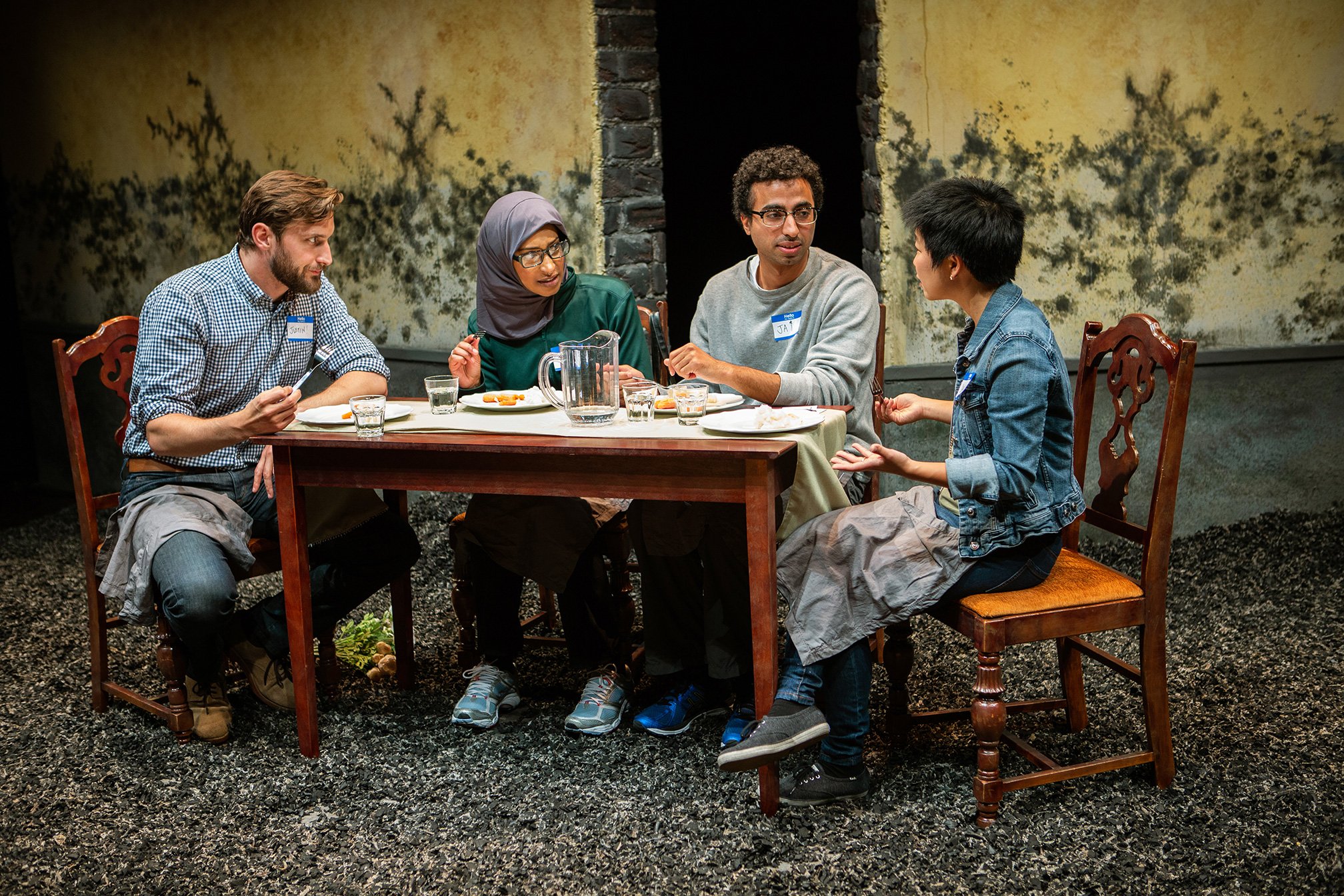The key to a good thriller is suspense. There’s nothing I love more than waiting for that surprise — the name of that mysterious figure in the corridor, the source of that uncanny music, the reason behind that locked door. The only thing is: a story has to make you want the answer to these mysteries. More importantly, it has to make the answer seem unknowable — at least, for a time.
And perhaps this is the issue with Dipika Guha’s “In Braunau,” a story which seems all too knowable. The story follows an interracial couple — a white American man named Justin (Josh Schell) and an Asian American woman Sarah (Sango Tajima) — in the wake of the 2016 presidential election, trying to find a way to create meaningful change in the world. And what better way to do that, they decide, than to move across the world to Braunau, Austria, purchase the childhood home of Adolf Hitler and transform the whole lot of land into — not a bed and breakfast — but a B&D, a breakfast and dinner (as dinner brings about more fruitful discussion). I mean, what could possibly go wrong?
Unsurprisingly, the answer is: just about everything.
The entire premise of “In Braunau,” while original, doesn’t exactly lay the groundwork for surprise or suspense. It has the elements of what could be a good horror piece: the chilling melodies of an unseen children’s chorus, a nearby graveyard, inexplicable dropped calls, and perhaps most chillingly, white supremacists. However, these horrific elements, introduced so early on in conjunction with Justin and Sarah’s over-eager and enthusiastic devotion to the project — Sarah, at one point, even reveals that she used the entirety of her inheritance buying and renovating the property — seem foreseeable, and perhaps worse, uninteresting.
Which is not to say that the plot itself is uninteresting — the idea of a liberal American couple converting a “birthplace of evil” into a birthplace for fruitful dialogue regarding good, positive and meaningful reform is not only refreshing and original — it is captivating. My issue is not with the storyline, but with the execution. Justin and Sarah’s plan is already inane, albeit surreal, but I would love to see it told in a way that either leans fully into this absurdity or pushes the notion that this could, in fact, happen in real life.
Because, as it stands, I found the tone of this piece to lie somewhere in between absurd and realistic, which made the play just a couple of naive, wacky characters operating in a perfectly rational, yet haunting, world. Perhaps if Justin and Sarah’s confidence in their ambitious project wasn’t so unwavering, or if it was clear that the world in which they acted in was somehow a caricature of reality it wouldn’t seem like so much of a nothing-could-go-wrong — oh-wait, just-kidding! — type of story.
A central question that underlies this plot is, simply, whether or not evil is a real force at work in the world, and whether this force can be altered like Justin and Sarah’s B&D — or if it is fixed, alive and immortal, like an evil spirit that haunts unholy ground. I find this question particularly interesting, especially as it dives into discussions regarding white nationalists: Are people inherently evil or can “good” people become evil by virtue of their evil actions? Can we measure a person’s true nature by the net worth of their actions, or is there something greater at play?
These seem like incredibly relevant questions, especially today, as “evil” continuously pervades this country and the world in terms of race riots and hate crimes. Guha’s play seems to argue that, yes, evil is very real — and sometimes, you can stare it right in the face and not even know it until it’s too late. Sometimes, evil takes the form of a friend, or a lover, or even, yourself. These ideas alone are frightening, and with some fine tuning, this play has the power to shake audiences everywhere with unrelenting, persistent, unpleasant truths in Braunau and in the world at large.
Contact Alli Cruz at allicruz ‘at’ stanford.edu.
